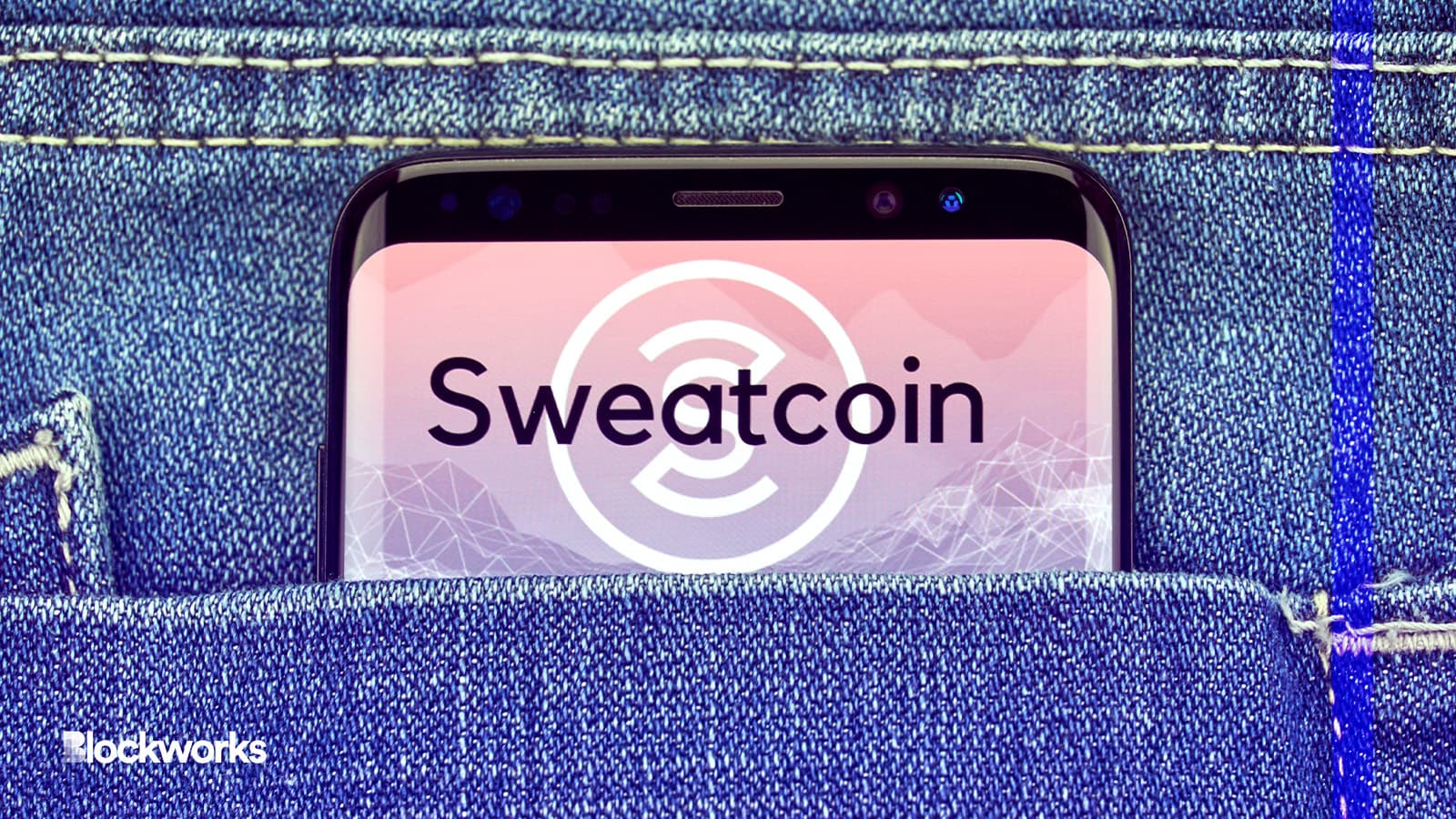Buoyed by XRP court ruling, Sweat Economy goes live in the US
The app will let US users earn tokens by walking and trade them on centralized exchanges

dennizn/Shutterstock modified by Blockworks
The move-to-earn company behind Sweatcoin is bringing its Sweat Wallet on-chain in the US.
American Sweatcoin users are now able to move their SWEAT tokens into the Sweat Wallet app and trade the currency on secondary markets. Sweat Economy’s co-founder said the move came after the company’s legal advisors said SWEAT is safe from being labeled as a security by US regulators.
Sweatcoin takes phone data to count users’ steps, allowing every 1000 steps to be redeemed for one SWEAT. The tokens are currently worth around a cent and are tradeable on Bybit, KuCoin, and OKX, among other exchanges. Users can also earn SWEAT by playing Sweatcoin’s NFT game and staking their SWEAT in “Growth Jars.”
Sweatcoin was founded in 2014 but didn’t go on-chain until last year, when the company, now called Sweat Economy, launched its SWEAT token on the NEAR protocol. The 2022 launch didn’t bring SWEAT to America, however.
This was because “paranoid” lawyers advised the company against ongoing uncertainty about the legal status of crypto in the US, according to Oleg Fomenko, the Sweat Foundation’s co-founder.
But after Ripple scored a partial court win in its long-running legal fight with the US Securities and Exchange Commission, the company and its lawyers became “100%” certain that SWEAT is not a security.
A federal court ruled in July that while Ripple’s [XRP] sales to institutions constituted securities offerings, its programmatic sales did not. The case is ongoing.
Move-to-earn apps have caught flack in the past for their allegedly unsustainable economic models, but Fomenko said that Sweat’s economic structure isn’t based on “ponzinomics.” Sweat, Fomenko argued, spent eight years building out its business before creating a token.
At the time of writing, Sweat Wallet is the #8 financial app on the app store.
The US “needs this,” Fomenko added. “Because let’s face it: we [don’t have] an extremely fit population.”
Get the news in your inbox. Explore Blockworks newsletters:
- The Breakdown: Decoding crypto and the markets. Daily.
- 0xResearch: Alpha in your inbox. Think like an analyst.






